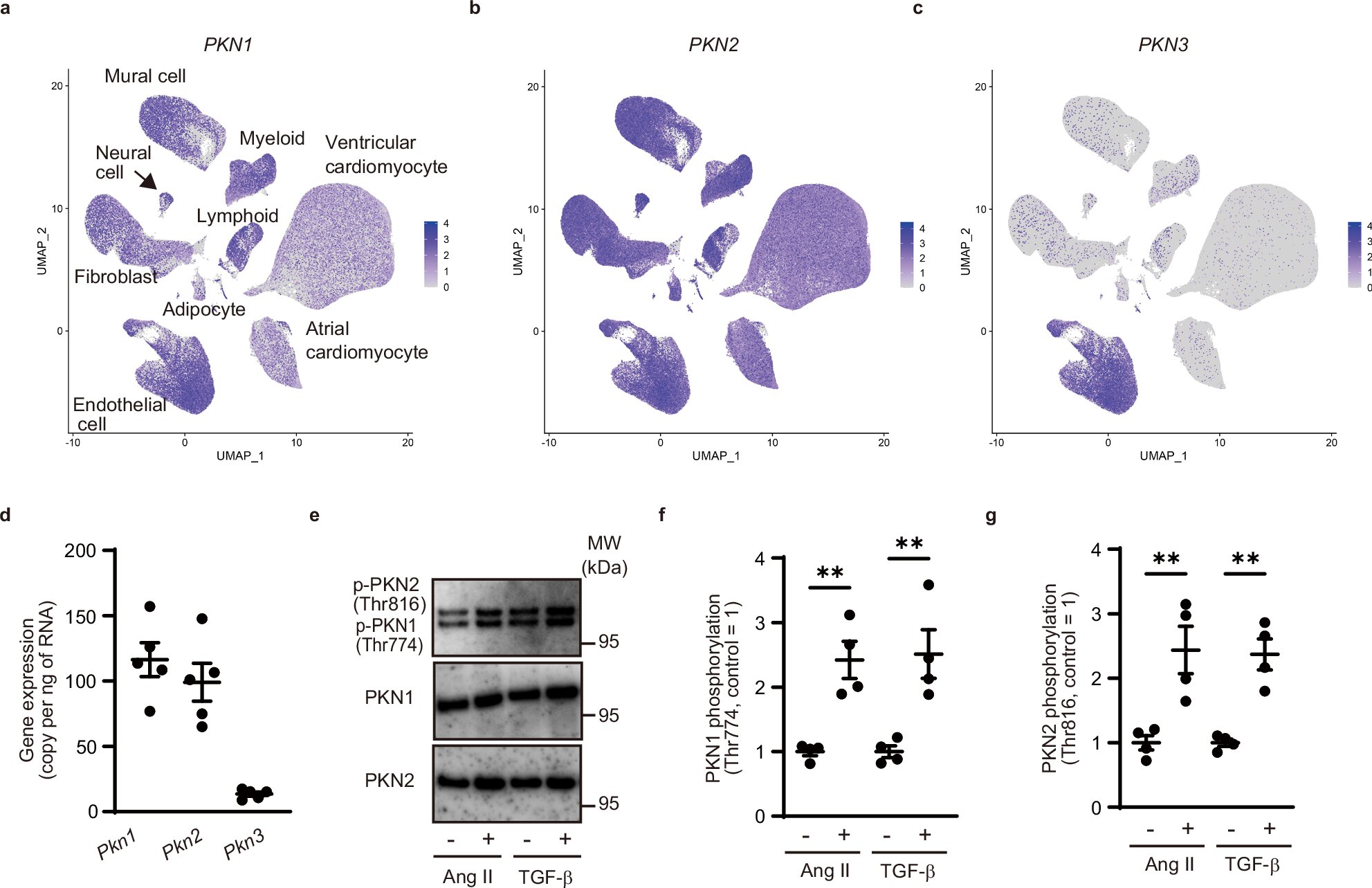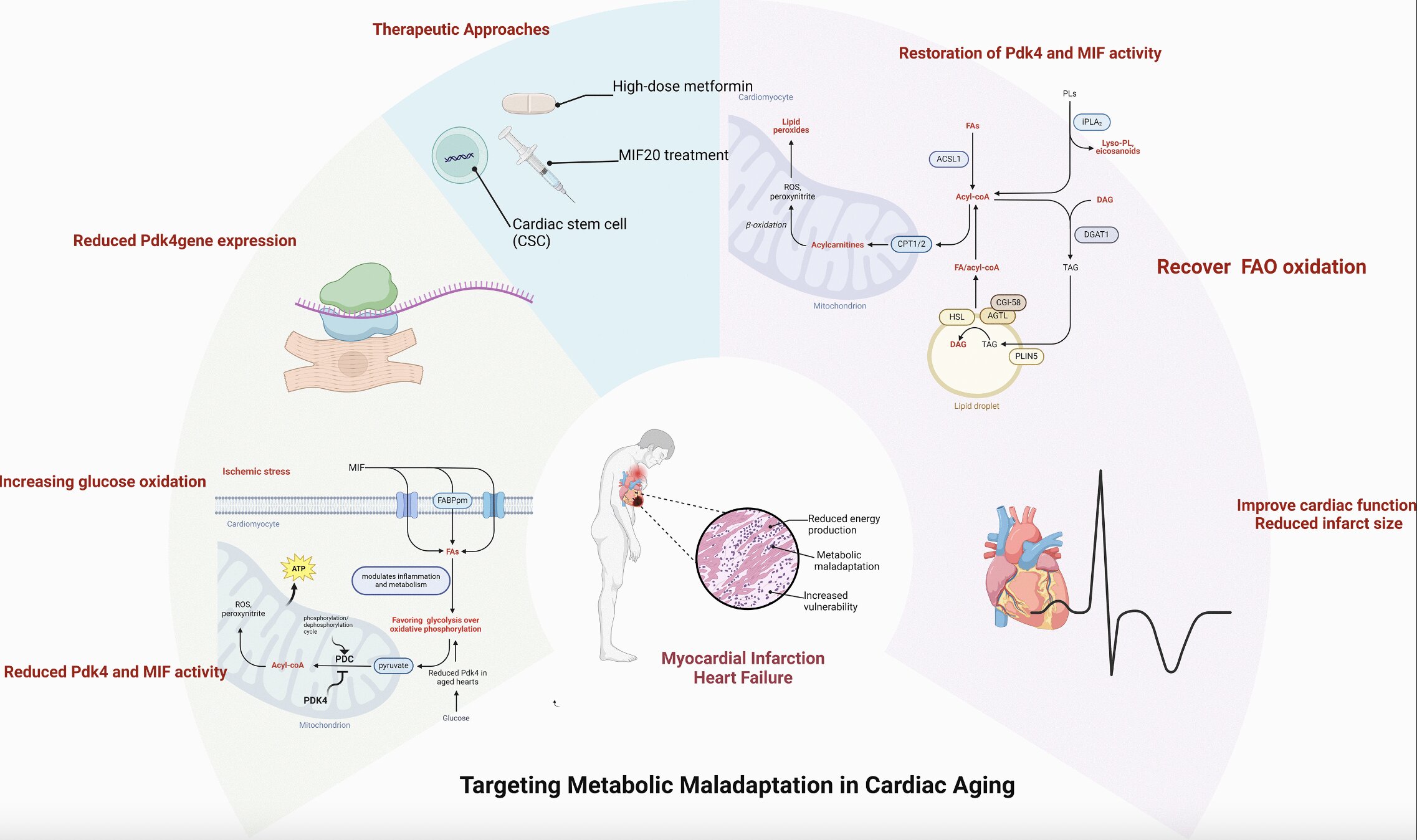
As society ages, the number of patients with heart failure is rapidly increasing. Excessive growth of fibrotic tissue in the heart, known as fibrosis, is associated with the progression of heart failure. A group from the Nagoya University Graduate School of Medicine in Japan has found an enzyme protein kinase N (PKN) that regulates heart fibrosis. The enzyme catalyzes the conversion of heart fibroblasts to myofibroblasts, which threatens the integrity of the heart.
Deleting this enzyme reduced cardiac dysfunction, indicating the potential of anti-PKN treatments as a promising therapeutic for protecting patients against heart failure. The study was published in Nature Communications.
The heart uses small cells known as fibroblasts to maintain its integrity, and after injury, these are often converted into myofibroblasts. Myofibroblasts aid in wound healing by producing fibrous connection tissues such as collagen and elastin. However, in heart failure patients, they often cause excessive tissue to accumulate, leading to stiffening of heart tissue and impaired function, a condition that is known as fibrosis. This process causes a loss of the integrity of the heart’s structure, increasing the risk of a heart attack.
The enzyme PKN has been implicated in a signaling cascade that causes heart fibroblast activation. A group led by Drs. Satoya Yoshida, Mikito Takefuji, and Toyoaki Murohara in the Department of Cardiology at the Nagoya University Graduate School of Medicine suspected the involvement of PKN in the changes of fibroblasts to myofibroblasts seen in fibrosis. In collaboration with colleagues at the Max Planck Institute, they investigated its role.
In mammal cells, there are three forms of PKN: PKN1, 2, and 3. Using RNA-sequencing data, they identified PKN1 and 2 in heart fibroblasts. The study used mice raised without PKN1 and PKN2. It found that although heart function remained unaffected, there was a notable decrease in actin and collagen expression in the myocardial infarction and heart failure model. These proteins are essential components responsible for the tissue buildup observed in fibrosis. They also found that mice with suppressed PKN1 and 2 did not show conversion of fibroblasts to myofibroblasts.
“Although our study was done in a mouse model, PKN expression has been demonstrated in human heart fibroblasts, so similar results are expected in human trials,” Dr. Yoshida said. “In fact, almost all heart diseases are closely related to heart fibrosis. I believe our findings contribute to improving the prognosis of many heart diseases, especially heart failure.”
At present, there are no treatments that focus on PKN. However, the group hopes that their findings will lead to the development of PKN inhibitors. Such inhibitors would be a new type of treatment for patients at risk of heart failure.
More information:
Protein kinase N promotes cardiac fibrosis in heart failure by fibroblast-to-myofibroblast conversion, Nature Communications (2024). DOI: 10.1038/s41467-024-52068-0. www.nature.com/articles/s41467-024-52068-0
Citation:
Researchers discover new target for treating heart failure: Protein kinase N (2024, September 13)
retrieved 13 September 2024
from https://medicalxpress.com/news/2024-09-heart-failure-protein-kinase.html
This document is subject to copyright. Apart from any fair dealing for the purpose of private study or research, no
part may be reproduced without the written permission. The content is provided for information purposes only.



